Home >
SIWW >
Spotlight 2023 >
Programme >
Technical Site Visits >
Nanyang Environment and Water Research Institute (NEWRI) & Separation Technologies Applied Research and Translation Centre (START)
Nanyang Environment and Water Research Institute (NEWRI) & Separation Technologies Applied Research and Translation Centre (START)
Nanyang Environment and Water Research Institute (NEWRI)
Globally ranked among the top research and technology organizations in its field, the Nanyang Environmental and Water Research Institute (NEWRI) ecosystem strives to take cutting edge inventions to innovative engineered solutions for various domains in water and sustainability, including Biotechnology, Membranes, Green Chemicals and Materials, Resource Recovery and Environmental Sensing and Modelling.
Well equipped with state-of-the-art facilities, including a remarkable suite of high-end analytical equipment - chromatography, spectroscopy, microscopy, imaging and cell analysis, and automated sample preparation, NEWRI’s deep research is supported by such strong analytical capabilities and scaled-up through robust engineering to industry-scale applications in the field, through piloting and deployment at full scale in real life settings.
Some examples of NEWRI’s urban solutions for deployment include lower energy desalination, autonomous water treatment systems, next generation solid-waste solutions, advanced agriculture technologies, and resource recovery for circular economy.
Through industrial and CSR projects with commercial and social impact, NEWRI continuously endeavours to make a difference towards developing a true circular economy through efficient reuse innovations, and harnessing the value in waste. Based on the relevance of its work, NEWRI has built close collaborations with several leading industry players in its fields of research, and co-created holistic environmental engineered solutions.
Aligned with NTU’s dramatic growth in global rankings and impact over the past decade, NEWRI is committed to grow, evolve and diversify through its close engagement with funding agencies and industry partners, and will collaborate with multinational companies, large local enterprises, as well as small and medium enterprises and start-ups to co-create innovative and commercially viable products and processes.
NEWRI continues to stay engaged in its vision to be the pre-eminent Water and Environment Research Institute for leading-edge research, translation into world class products, and developing a highly skilled workforce.
 Chemical & bioassay screenings & applications
|
 Wastewater characterisation & water chemistry
|
Separation Technologies Applied Research and Translation (START) Centre
The Separation Technologies Applied Research & Translation (START) Centre, a national facility, was launched in June 2016 to develop and commercialise innovative separation and filtration technologies, and it aims to reduce risk for companies to adopt the new technologies. START plugs an important gap in the ecosystem between lab-scale R&D carried out in local as well as overseas research entities and market adoption by focusing on translation and technology scale-up to accelerate the commercialisation process. We collaborate with Institutes of Higher Learning and various industrial partners to achieve this goal.
Choosing the appropriate technologies for scale-up is key to the success of translation and commercialization activities. The centre, which is staffed by several industry experts, begins by doing a rigorous techno-commercial analysis of down-selected inventions. If the analysis is positive, the process includes scale-up of the membranes (hollow-fibre or flat-sheet), followed by module design, fabrication and testing at increasing sizes. This is followed by system design, integration, and piloting at scale under real-life conditions. Throughout this process, we work closely with potential industrial partners.
Typically, small stage membrane materials are made with high grade lab chemicals and a very controlled process. In order to fabricate the same technology on an economically viable large scale, we need to shift to industrial grade chemicals and manufacturing equipment. This requires significant process development and optimisation. Once we have a stable membrane process, the next step is replicating the membrane performance in the lab, at the modular stage. We do this through a gradual scale-up to 2 inch, 4 inch and 8 inch modules, while retaining key membrane and module properties including e.g. rejection and flux.
Some of the projects we have worked on, include nano-filtration membranes for low pressure water softening applications, membrane distillation, Pressure Retarded Osmosis for energy optimization in desalination, as well as modular and skid design. In addition, START Centre has collaborated with various industry players on application and pilot testing of these technologies.
START Centre moved into its second phase from October 2021. One of the key areas we have undertaken, is the set up and operation of a demonstration scale (~1 MGD) Integrated Validation Plant for seawater desalination plant. The main purpose of this plant is to select and test, in collaboration with PUB, cutting edge technologies at various stages in the entire desalination process at scale, with the objective of driving down the overall energy cost, and achieving process optimization. These results obtained will provide significant inputs towards decision making for new desalination plants, as well as retrofitting existing plants in Singapore.
In addition to the activities above, START has also expanded its translational activities to include separations outside the water domain. The two key projects which we are involved with include, gas separations for carbon capture, and solvent separations for industrial processes.
At the technical site visit, participants will see START Centre’s unique scale-up and translation facilities, including flat-sheet and hollow-fibre fabrication, element and module construction, and testing at various scales.
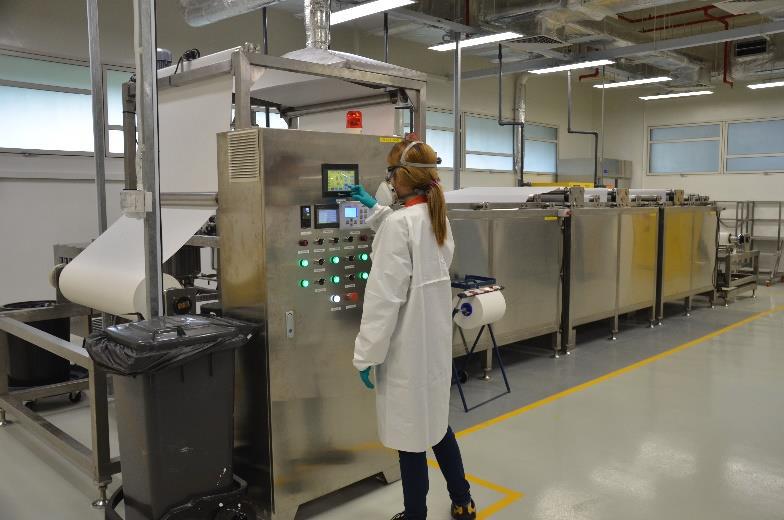 Flat Sheet Membrane Phase Inversion Line
|
|
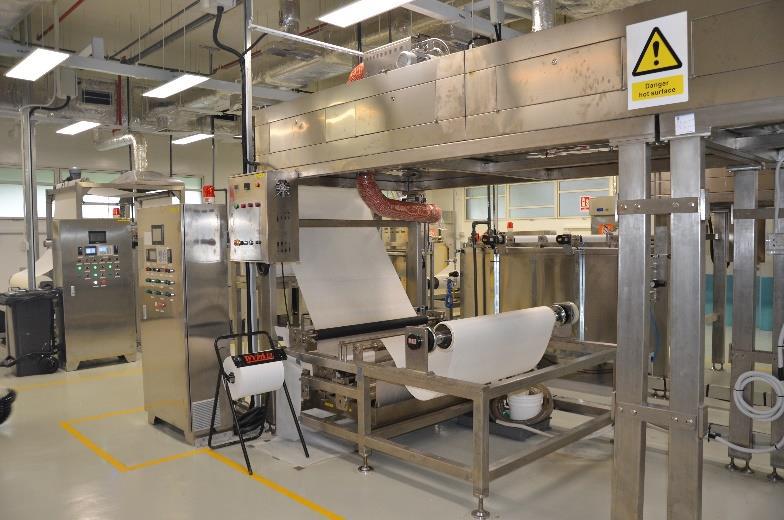 Flat Sheet Membrane Thin Film Composite Line
|
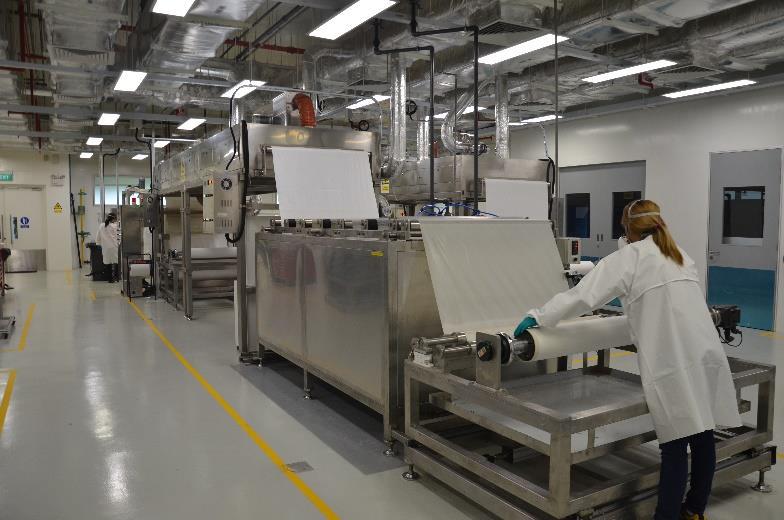 Flat Sheet Membrane Thin Film Composite Line
|
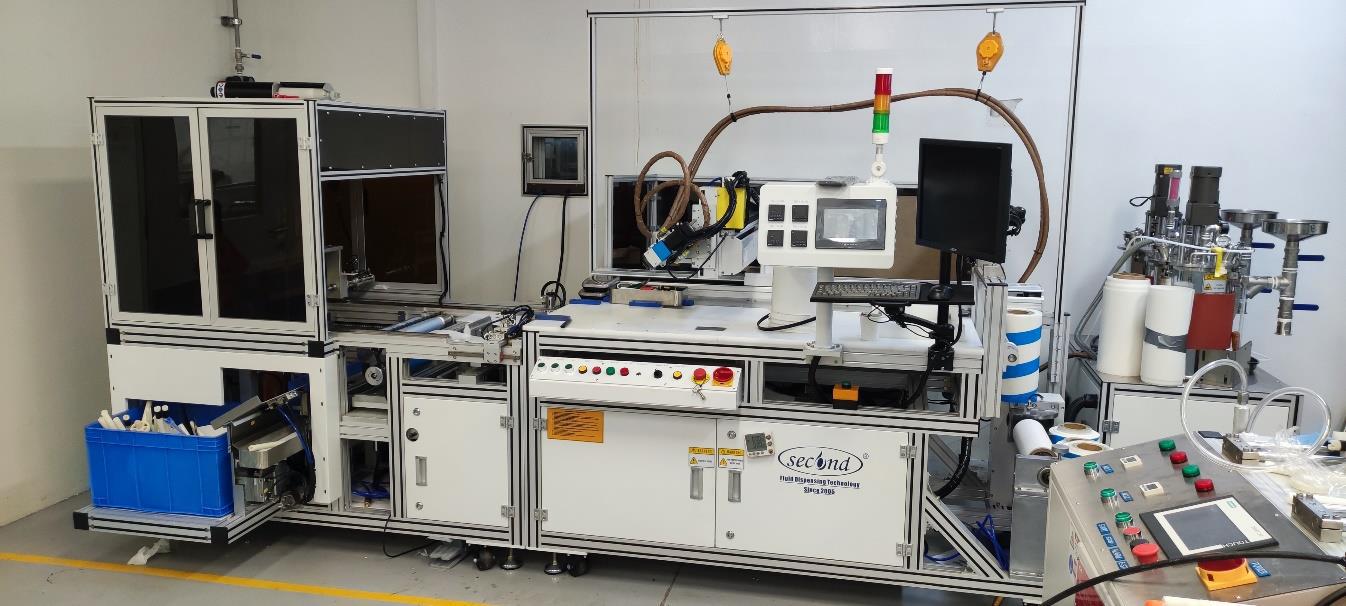 Domestic-scale Automated Element Rolling Machine
|
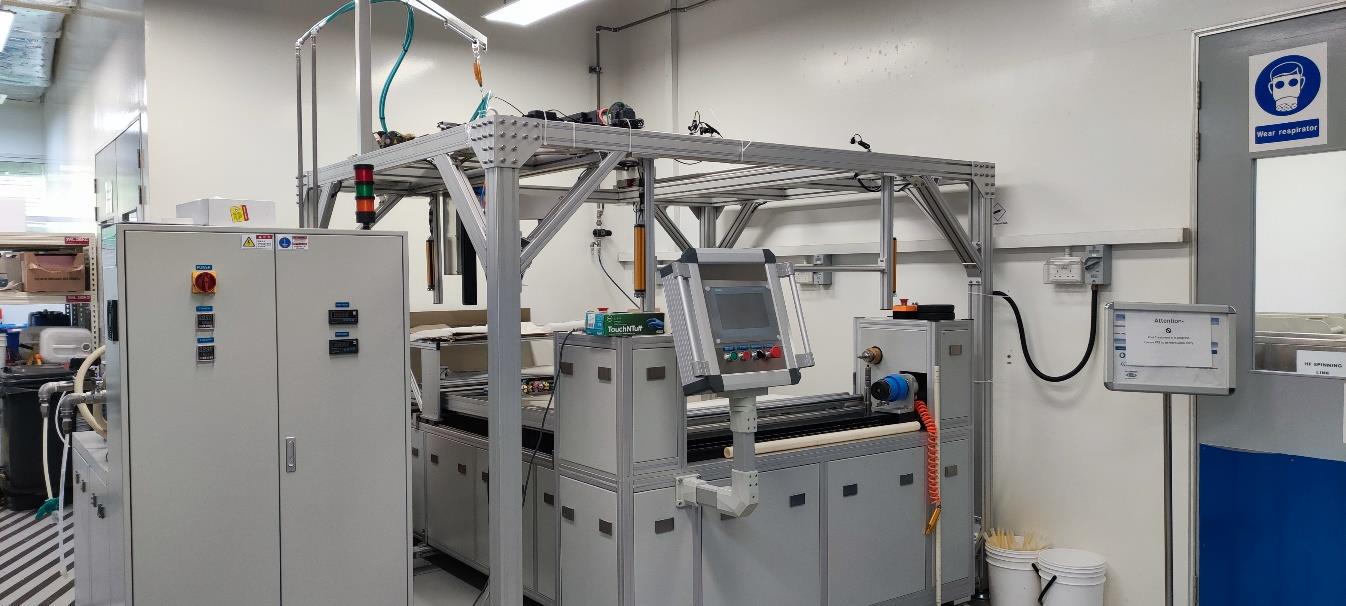 Industrial-scale Automated Element Rolling Machine
|
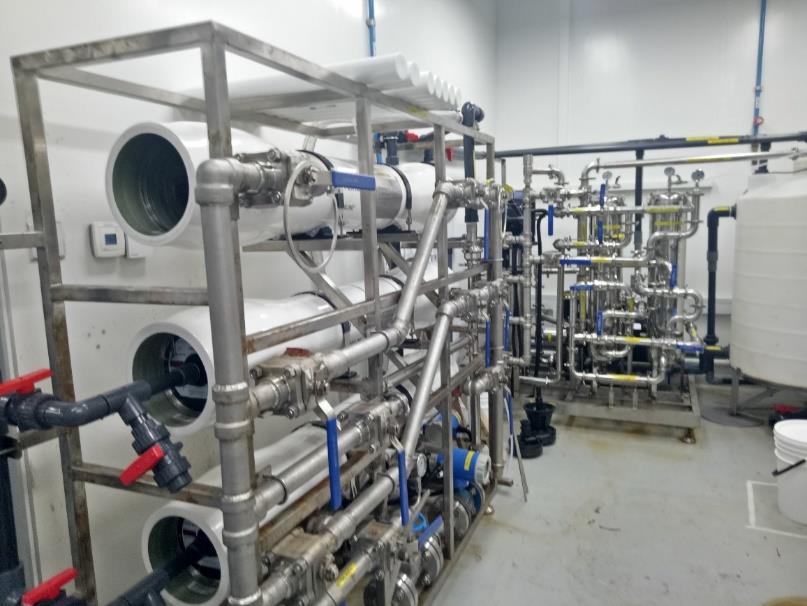 8-inch Element Testing Skid (SWRO)
|
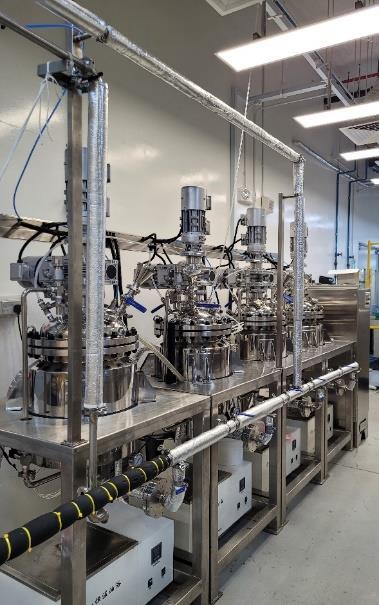 Hollow Fiber Membrane Fabrication Lab
|
